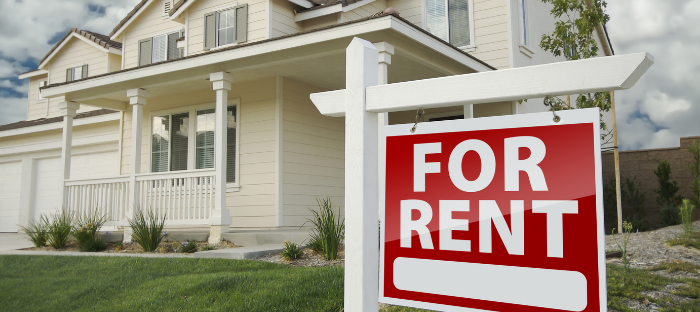Is Subletting or Renting the Right Call for You?
Is subletting or renting the right call for you?

What does it mean to sublet or rent out your home?
Subletting is when you, the original tenant, find someone to take over your lease for a specific amount of time. This is usually when you know you will not be able to fulfill the terms of your lease, whether it's because you are moving away or because your landlord is raising the rent. In this case, you have the right to sublet your place as part of your lease.
In a standard sublease agreement, you will be listed as the "landlord" and then you will find someone (typically through an online or paper ad) who will take over the lease for a specific period of time.
Just like with anything else, you want to make sure that the person who takes over your place is trustworthy and has a decent rental history. There are fees associated with subletting. Usually, the landlord will require the new tenant pay for prorated rent as well as a fee (typically one month's rent) for taking over what's remaining on your lease.
It's also important to make sure that the terms of your lease agreement are clear to both the subletter and the landlord.
Renting out your home is a bit different - and usually more involved - than subletting it. When you rent out your home, you are essentially turning it into a business.
As the landlord, you will be responsible for finding a tenant, setting the rent price, and handling any repairs or issues that may come up. You will also need to get your home insured as a landlord.
There are a few things to keep in mind if you decide to rent out your home. First, make sure that you are familiar with your Province's landlord-tenant laws.
You will also need to have a written lease agreement in place and be sure to screen your tenants carefully. It's important to remember that you are running a business, so you should expect to see some turnover and not expect every tenant to stay for the long haul.
Both subletting and renting out your home can be a great way to make some extra money, but it's important to be aware of the pros and cons of each before you decide what's right for you.
Pros and cons of subletting:

Subletting can help you avoid breaking your lease.
We explained this above but if you're unsure if you'll be able to fulfill your lease for the duration of the lease term, a sublease can help you stay in good standing.
You need to take a good look at the original lease first though, to make sure that the original landlord is open to the idea. You will need the landlord's consent but overall, it's better than unpaid rent for everyone involved.
Subletting can help you save money.
If your apartment is big enough for one more tenant and you have the landlord's permission, you can find other tenants so that you can pool your resources together to pay the rent.
Whether it's a friend or someone you found, the new agreement should have the written consent of all parties to protect everyone involved. Though it's a change in your living situation, the lower financial strain will help you keep the apartment or rental unit.
Of course, it's a good idea to have a roommate agreement as well as a sublet agreement to make everything clear. After all, it's still your day-to-day life.
You can find a sample agreement online easily for each occasion and tailor it for the written agreement to make sense for your situation.
May require paying fees to the landlord.
Depending on your lease agreement, you may be liable to pay fees to the landlord to allow someone to live in the apartment as a subletter.
As the original tenant, it's a very good idea to keep communication open; it's not simply over once a contract is signed. You need to know what the fees are, as outlined in your original tenancy agreement, and you must pay them to the landlord.
Additional maintenance from a new tenant.
Having other occupants means that automatically there will be more wear and tear and you need to have a system in place to deal with maintenance fees with the original landlord.
Whether the additional costs are factored in the fees paid to the landlord or in the rent of the new person, is up to you and your landlord.
Pros and cons of renting out your home:

Can be a great way to make money.
As the original landlord, you can charge more for rent than you would if you were just subletting. The increased price can help cover any additional costs that come with being a landlord, such as background and credit checks, advertising, and repairs.
It's much more profitable to rent out your home rather than subletting somewhere you are renting yourself.
You can make your own rules.
As long as you have a written agreement (always, always put it in writing), you can choose the terms of the tenancy agreement since you're the landlord.
It's up to you if you want to charge pet fees or additional security deposits and any other clauses that usually come with renting out a home.
Most importantly, the agreement should make sense for the location of your home, its features, and even how long you plan on renting it out. A signed agreement is essential so that you still have the law on your side if the new tenant fails to fulfill their end of the bargain.
You are responsible for any damages.
As the landlord, you are also responsible for any damages that occur to the property while it's under someone else's name.
This is why it's important to have a security deposit and/or insurance. If something major happens, you're going to want to be sure that you can cover the costs yourself.
May require more work on your part, such as repairs and maintenance.
Though it may be more profitable in the long run, being a landlord does require more work. You need to be available to show the property, answer any questions tenants may have, and be on call for repairs or to help people check-in.
This can be a lot of work, especially if you're doing it all yourself.
You are responsible for understanding your state's landlord-tenant laws.
It's more important to be familiar with your state's landlord-tenant laws when you're renting out your home rather than subletting.
Since you own the property, you have more responsibility and more to lose. We are not going to provide legal advice but before cashing in a security deposit, it's a good idea to look over your area's laws when it comes to what a landlord can do and what a landlord cannot. Landlords may have more power but they also have more obligations.
It's not just about getting paid, you want to know what the responsibilities of a tenant and landlord are, such as fees, repairs, and security deposits.
It can cause a lot of tension if a tenant rents the space and goes against things that you wanted but haven't laid out the need for the landlord's permission for certain things.
How to find a tenant if you're subletting:
A sublet is a relatively cheap way for someone to secure a place to live, as such you should look in the right places to find someone who is most likely to find subletting attractive.
Many college students use university social media groups (Facebook housing groups for example) to look for subletters. Usually, this would also mean the signing of a roommate agreement to set expectations right for each person.
You can also use Airbnb or other similar sites that can help you screen applicants. Put yourself in a subletter's shoes and think of what they would like in an apartment and the information they would want and use that to create a great listing to attract the best prospective tenant.
How to find a tenant if you're renting:
Some landlords think that listings are the only option but we're two decades into the new millennium. On top of traditional listings, websites like Airbnb can help you find the right tenant quickly and efficiently but nothing beats out getting in touch with a real estate agent if you're looking for someone to rent your property in the long term.
Real estate agents usually have a wide pool of potential tenants to choose from and can help you get the most out of your rental property.
They also know the laws and can help you screen applicants so that you don't have to worry about any legal troubles down the line.
What can happen if you don't take proper precautions when subletting?
If you are the original tenant subletting your apartment, you need to make sure that neither you nor your sub-tenant are breaking any laws or acting without the consent of the landlord.
At the end of the day, as the original tenant, you're responsible for maintaining a good relationship with the landlord. Aside from abiding by the agreement that lays out rules about noise and pets, for example, keeping the rental unit in good shape can help you avoid dire consequences like fines or even eviction in the worst cases.
What can happen if you don't take proper precautions when renting out an apartment or house?
When you rent out your space, you are responsible for all of the legalities that go along with it. This means making sure that you've adhered to the laws regarding security deposits and pets, abiding by zoning rules for noise, etc.
Be aware of your responsibilities as a landlord before renting out your property because failing to do so can result in some hefty fines that far outweigh what you earn from the rent.
Renting out a property can be a great way to make some extra money but it's important to know what you're getting into. Make sure that you understand your state's landlord-tenant laws and what is expected of you as the property owner.
Have a plan for finding the right tenant and make sure that you have the time to deal with any difficulties that might arise. This will help prevent any problems or lawsuits that the tenant might decide to pursue against you.
Conclusion
It takes a lot of work and pouring over conditions but either as a landlord or a tenant looking or a subletter, renting out your living space can help you save or make a lot of money. Is it worth the cost? That almost always depends on the person renting from you. So screen the prospective tenant properly and know your stuff!
View All Homes For Sale in Greater Vancouver >>>
About Search Home Listings
SearchHomeListings.ca has simplified the home buying and selling process by giving you superior tools with up-to-the-minute information including active homes for sale, sold homes, market reports, and a home valuation tool! We have a team of success managers on standby to support you with setting up your saved home search and agents ready to take you out on a tour. Tap into our industry experts from inspectors, to contractors to interior designers to provide you with the best prices and service possible. Everyone attached to our website has been rigorously vetted and is made up of caring, knowledgeable professionals that work tirelessly to help you to make your home buying experience as stress-free as possible. Contact us today to see how we can help!
Sites We Follow
Categories
Recent Posts










